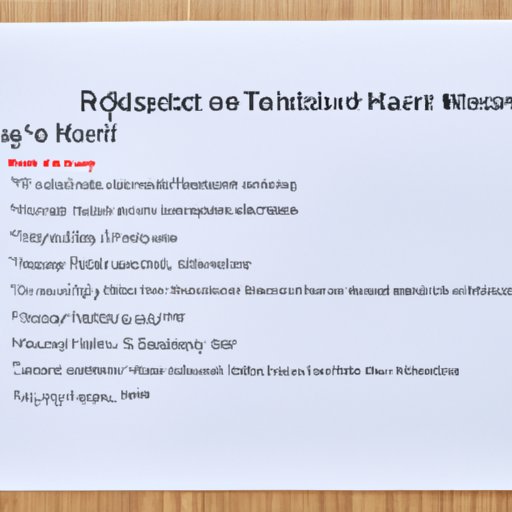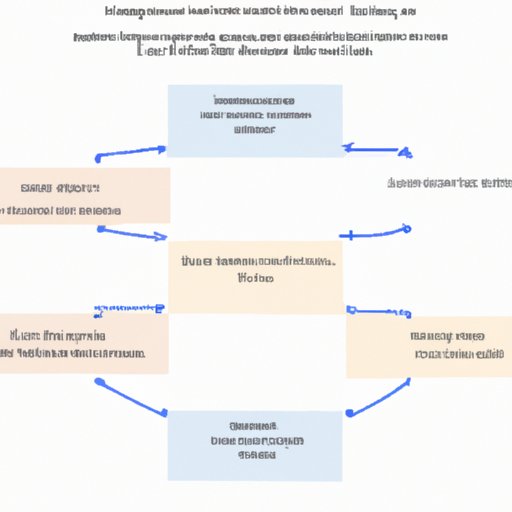Introduction
Hormone replacement therapy (HRT) is a medical treatment used to address symptoms of menopause in women, as well as other hormonal imbalances. This therapy can be used to reduce hot flashes, night sweats, and other menopausal symptoms, as well as to improve overall health and wellbeing. While there are many potential benefits associated with HRT, there are also some risks to consider. It is important to discuss these benefits and risks with your doctor before beginning any type of hormone replacement therapy.
The purpose of this article is to provide information on starting HRT. We will explore different types of HRT, including estrogen and testosterone, and discuss how to find a qualified physician who specializes in hormone replacement therapy. We will also provide tips on preparing yourself physically and emotionally before starting HRT, and provide an overview of the process of beginning hormone therapy.
Exploring Different Types of HRT, Including Estrogen and Testosterone
Estrogen is a hormone that is produced naturally by the body and helps to regulate reproductive functions. It is often used in hormone replacement therapy to treat symptoms of menopause. There are three main types of estrogen used in HRT: oral tablets, topical creams, and transdermal patches. Each type has its own advantages and disadvantages, so it is important to discuss which one is right for you with your doctor.
Testosterone is a male sex hormone that is also used in HRT. It is typically prescribed to treat low levels of testosterone or other conditions such as hypogonadism. Like estrogen, there are several different forms of testosterone available, including injections, gels, and patches. Again, it is important to consult with your doctor to determine which type is best for you.
Understanding Your Doctor’s Recommendations for Starting HRT
When starting HRT, it is important to discuss your particular needs with a qualified physician. Your doctor will be able to assess your medical history, lifestyle, and family history to determine if hormone replacement therapy is right for you. They will also be able to recommend the best medications and dosages to meet your individual needs.
According to a study published in Clinical Interventions in Aging, “It is important to have a clear understanding of the goals of HRT and to have realistic expectations regarding the outcomes of this therapy.” The study recommends that patients and their physicians work together to create an individualized plan tailored to the patient’s specific needs.

How to Find a Qualified Physician Who Specializes in HRT
If you are considering starting HRT, it is important to find a qualified physician who specializes in hormone replacement therapy. You can research physicians in your area who specialize in HRT and ask for referrals from friends and family. You should also make sure that the doctor you choose is board-certified and has experience in treating hormone-related conditions.
Tips on Preparing Yourself Physically and Emotionally Before Starting HRT
Before beginning hormone replacement therapy, it is important to take steps to prepare yourself physically and emotionally. Eating a healthy diet, exercising regularly, and talking to a therapist or counselor about any concerns can help to ensure a successful transition into HRT.
A study published in Maturitas states that “Women who are considering hormone therapy should be advised to make lifestyle changes, such as increasing physical activity, stopping smoking, reducing alcohol consumption, and maintaining a healthy weight.” Making these changes prior to beginning HRT can help to maximize the positive effects of the therapy.

An Overview of the Process of Starting HRT
Once you have decided to start hormone replacement therapy and have found a qualified physician, you will need to go through a few steps before beginning treatment. Your doctor will likely want to discuss any current medications you are taking and any potential side effects that may occur. You will also need to have regular blood tests to monitor your hormone levels and check for any adverse reactions.
When you begin HRT, you may experience some side effects such as nausea, headaches, or breast tenderness. It is important to be aware of these possible side effects and talk to your doctor about ways to manage them. It is also important to keep up with follow up visits and monitoring progress, as recommended by your doctor.
Conclusion
Hormone replacement therapy can provide many potential benefits, but it is important to understand the risks involved before beginning treatment. This article has provided an overview of the benefits and risks associated with HRT, as well as tips on how to prepare for and start HRT. It discussed the different types of HRT available and how to find a qualified physician. Finally, it provided an overview of the process of beginning hormone therapy and what to expect.
We encourage readers to speak to their doctor about starting HRT. With the right preparation and precautions, hormone replacement therapy can be an effective way to address symptoms of menopause and other hormonal imbalances.
(Note: Is this article not meeting your expectations? Do you have knowledge or insights to share? Unlock new opportunities and expand your reach by joining our authors team. Click Registration to join us and share your expertise with our readers.)
